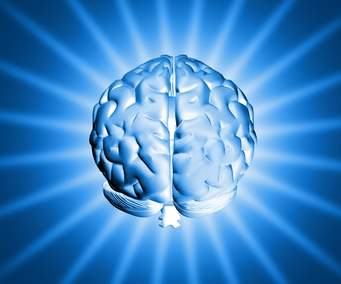
Many of us have allowed the demands of technology to bypass our minds and go directly to our core brains. Your core brain doesn’t think on its own: it simply reacts according to past programming, even answering the smart phone when it rings, responding immediately to text messages as they arrive, and interrupting work in progress to check email messages as though they were priorities.
Your mind is capable of curbing impulses to react, changing time wasting or dangerous habits, and giving directions to your brain. The mind’s ability to change the brain is referred to as self-directed neuroplasticity, and is now considered to be a scientific fact – with plenty of research to back it up.
Use your mind to rid yourself of destructive habits
If you can believe that the mind is separate from the brain, you can break bad habits and replace them with more productive ones using the following five-step plan.
- Identify the brain messages that got you into the habit in the first place and evaluate them with your mind. (For example, perhaps at one time it seemed essential to check email about every five minutes, but no longer makes sense.)
- Direct your attention to the new action you prefer – the one that meets your personal values and that would be healthier and more productive for you. (For example, to check email first thing in the morning and then only after every 90-minute work session.)
- Use your “won’t power” the next time you have the urge to act out the habitual behaviour, and instead, act out the new behaviour you have determined is more reasonable and more proactive. (Say no to yourself when you have that mental itch to check your email before it’s time to do so.)
- Use your “willpower” to act out the replacing behaviour – even though the urge is still there to do otherwise. This requires mindfulness and focus on your part. Neurologists seem to agree that every time you make a conscious effort to practice willpower, your willpower becomes stronger.
- Focus on the new behaviour. The more you focus and follow through with the new behaviour, the sooner this new behaviour becomes the new habit. The old habit will fade from disuse.
The reason this works is that by acting out a new behaviour again and again, you are re-wiring your current neurons to form a new circuit.
Of course it takes willpower to focus on what’s important and ignore the many environmental distractions. And since willpower consumes energy, you must get plenty of sleep, eat well, avoid stress as much is possible and avoid long work sessions beyond the recommended 90 minutes. You may further assist your mind by scheduling in the mornings those tasks that require deep thinking, problem solving and creativity. Your energy is generally higher in the morning. (That’s why people seldom break from their healthy diets early in the day; but grab snacks and cheat on their diets before bedtime.)
Your mind has the power to manage your brain.
You are your mind. You have the power to decide what is important and what is not; what should be done and what should be delayed or abandoned; which behaviours should be changed and which ones should be retained. Once you really believe that, you are in control of your life.
As Mark Bowden explains in his book, Tame the primitive brain, our core brain perceives any change as a threat until proven otherwise. It doesn’t “think” as such, but simply receives information from the senses and relies on the thinking part of the brain, (which I choose to refer to as the mind) to evaluate the situation and prescribe the appropriate course of action. But if we (our minds) are under constant stress, with an overload of information, responsibilities and tasks and a limited supply of energy and time, we are too busy playing “Rushing roulette” (as mentioned in my last blog) to respond quickly. In these situations, our primitive or core brain takes over and checks the email, responds to the text messages or answers the vibrating cell phone in order to counter the perceived threat. It is programmed to ensure our physical survival. Action is the default response whether it’s appropriate for that particular situation or not.
In effect, we are allowing technology, our environment, and others to hijack our brain and torpedo our personal productivity. That’s why we must get organized, introduce structure into our lives, put boundaries on our workday, prioritize on an ongoing basis, and accept the fact that we cannot do everything ourselves. It is essential that we manage our brain as well as our environment, technology, health, energy, and time.
You can make it easier to exert willpower, focus, and goal-directed persistence, in spite of distractions, by managing your physical environment as well – as we will discuss in next week’s blog.
Next blog article: How your work environment can impact productivity.


Recent Comments